Please pray for the priestly newsletter and for the intentions on the prayer list at the
end of the message.
The newsletter now goes to 70,000 priests. Internationally, over 245 bishops
and 4 cardinals request it for their diocese. Funds are needed to help us
distribute the newsletter to 90 foreign countries in the world.
By the time I got there it was snowing and almost dark.
Even though I miss him, I know he will help us through his powerful
intercession.
His death is a beautiful thing.
When I received beautiful visions, many times a golden veil would come down
as I described above. It was such a beautiful aura of golden
light, like a golden veil and all I could use to describe it was snowflakes. It
doesn't look exactly like that either, it is the only way I can think of to
describe it. The pictures, Jesus told me to take of Father Carter's grave look so
beautiful in the night with the snow. I look at Lucia's vision and I see the
liquid coming from Christ's hand and written on it are the words – grace and
mercy. Every time I wrote the word grave here, I accidentally put grace. His
death may help us tremendously as he intercedes for us from above. The pictures
Jesus gave me are a gift. I see his death as beautiful like the pictures.
Messages are a gift from God to help us to follow the right paths, to help us
to be in a deeper love union with Him.
We are imperfect and we don't know it all.
He is the Head. He wants us to pray for our priests, and the renewal of the
Church and the world.
He is giving us messages to help us. He is directing us so that we will grow
in holiness and live more fully according to God's will.
These messages are a gift from Him.
TEN Christian Love
1. Our Need to Love and Be Loved
Christianity is fundamentally a life of love. The Christian is one who opens himself to God's love, and responds with a love of his own. The Christian also realizes that his life is not only a love relationship with God, but also a going out of his
self-centeredness to other human persons in various forms of Christian love. Finally, the Christian is one who
realizes that in one way or another he needs the love of others and is willing to open himself to this love.
The Church, the People of God, must increasingly give witness to these multiple dimensions of Christian love. To the extent that the Church fails to do so, to that degree does she fail to be a faithful continuation of the Incarnation. For the Incarnation is above all a manifestation of love, and this in various ways. First of all, Christ is the tangible and irrevocable expression of God's determination to communicate Himself in love to men: "Yes, God loved the world so much that he gave his only Son, so that everyone who believes in him may not be lost but may have eternal life." (Jn 3:16).
Christ is also the visible expression of mankind's response to God's love, for as man, Christ made this perfect response in love to His Father. Further, Christ is the overwhelming concretization of what it means to love one's fellowman. Finally, He is the visible manifestation of one who perfectly opens Himself to receiving love from others.
We Christians, the People of God, must continue these various manifestations of love contained in the Incarnate Word. By our lives we must give witness to the fact that we have opened ourselves to God's loving self-communication, and that we are responding to that love with all that we are. We must give evidence that we want to give ourselves to others in a life of loving service, and that we are open to the love which others graciously extend to us.
It is of prime importance that all forms of loving, human relationships flourish in the life of the Church. Examples of such relationships are those found in marriage and family life, religious life and other friendships. These relationships not only witness to our willingness to love others and be loved by them, but they are schools for such reciprocal love. These relationships increase my capacity to love others and increase my openness in receiving love. Furthermore, these various interpersonal relationships help me to be open in receiving God's love and responding to it. However, if these relationships are to be fully authentic, they themselves must be rooted in our love relationship with God.
2. Love of God
It sounds so commonplace and obvious to say that God loves us. But if we could more perfectly realize what it means to be loved by God, our chances for complete transformation in Christ would be enhanced. With God's grace we must keep striving for a deeper comprehension of God's love. This love has brought us into existence, has redeemed us, and has given us a special mission in life. God in His love is ever with me, preserving me in life, asking me to accept Him more and more, desiring to take deeper possession of me in grace. God loves me, and He is my supporting rock, the one who will never fail me, the only one who can be my complete fulfillment.
God is the tremendous lover. And yet, we know that only too often we fail to respond to Him as we should. But we must keep trying. We must keep trying to fulfill more completely the commandment Christ has given us: "But when the Pharisees heard that he had silenced the Sadducees they
got together and, to disconcert him, one of them put a question, 'Master, which is the greatest commandment of the Law? ' Jesus said,
'You must love the Lord your God with all your heart, with all your soul, and with all your mind. This is the greatest and the first commandment. The second resembles it:
You must love your neighbor as yourself. . .' " (Mt 22:34-40).
St. Francis de Sales, a great spiritual master and a Doctor of the Church, aptly describes how we are to love God: "We have two principal ways of exercising our love for God; the first is affective and the second effective, or as St. Bernard calls it, active. By the first we have affection for God and what he loves. By the second we serve God and do what he ordains. The first joins us to God's goodness; the second enables us to fulfill his will. The first fills us with complacence, benevolence, and spiritual impulses, desires, aspirations, and fervors, and causes us to use the sacred infusions and minglings of our spirit with that of God. The second pours into us the solid resolution, firm courage, and inviolable obedience required to carry out the ordinances of God's will, and to suffer, accept, approve, and embrace all that comes from his good
pleasure."1
Father Joseph de Guilbert gives another excellent version of the distinction and connection between affective (internal) love and effective (external) love: "From what has been said about the Christian life being more perfect in proportion as charity elicits or commands the free acts of man in a more universal, actual, and intense manner, it follows that this perfection depends primarily on the exercise of affective charity. For if that disposition of charity does not inform the soul in some way, even the external acts which are perfectly performed in their own order will be of no supernatural value: and if this disposition is slothfully evoked or influences only weakly the external acts, then the acts will be of little value. But when the disposition is aroused energetically and has strong influence, then the external acts will be of great value. And if in such acts there are any imperfections arising from a source independent of the will (invincible ignorance or some physical or moral impossibility), the supernatural value of the acts will not in any way be
lessened."2
Besides showing the connection between affective and effective love, these words of de
Guibert indicate the primary requirement for dynamic progress in the Christian life. Love of God and neighbor must more and more influence everything we do. This love must become more actual, more conscious. Of course, all this must take place without strain. But we cannot equate strain and effort. It takes effort to live increasingly in a spirit of actual love. Sometimes a great effort is required. If we are not willing to pay the price of love, we will never develop into the Christians we are destined to become.
How do we know if we are loving as we should? If interior (affective) love is the more important, it is not always easy to judge. We have a tendency to confuse our feelings with our wills. If we feel completely dry, or even burdened with a sense of repugnance concerning our Christian lives, we tend to think that we are not loving God properly. Consequently, the best criterion we often have for judging our love of God and neighbor is the manner in which our interior love incarnates itself in external action. If, with the help of God's grace, we are doing our reasonable best to implement God's will in all the various dimensions of our existence, then we can be assured that we are loving as we ought.
Finally, we should be aware that God intends our love for Him to be focused in Christ, for it is in Him that God loves us and calls for our loving response. It is in Christ that we are being constantly led to a deeper love of the three divine persons. "For I am certain of this: neither death nor life, no angel, no prince, nothing that exists, nothing still to come, not any power, or height or depth, nor any created thing, can ever come between us and the love of God made visible in Christ Jesus our Lord." (Rm 8:38-39).
3. Love of Man
"My dear people, let us love one another since love comes from God and everyone who loves is begotten by God and knows God. Anyone who fails to love can never have known God, because God is love.
. . . Anyone who says,
'I love God', and hates his brother, is a liar, since a man who does not love the brother that he can see cannot love God, whom he has never seen. So this is the commandment that
he has given us, that anyone who loves God must also love his brother." (1 Jn
4:7-21).
Our God is a God who knows and loves. This divine knowing and loving exists not only among the divine persons themselves. Father, Son and Holy Spirit also go out in knowledge and love to man and the rest of creation. Consequently, since our life in Christ is a share in God's life, we are called to love not only God, but also man and the rest of creation. The Christian has structured within his life of grace this deep
desire – sometimes very latent – to
give himself to his fellowman in various forms of love. If this desire is not thwarted, it can truly help change the face of the earth.
What are some of the characteristics of our love for others? First of all, our love of neighbor should exclude no one. It should embrace every single person the world over. As Christ's love for man was universal, so must ours be. And as Christ truly achieved good for men in His love for them, so must we. In other words, in our universal love for men we must be willing to act to help promote their good. We can at least do this in our prayer for their various material and spiritual needs. This constitutes no slight contribution of love, for prayer is one of the great means of channeling God's gifts to the world.
Secondly, our love for man must take the form of a life service in one form or other. Christ came to
serve. He was fully the man for others. Can our lives be orientated in any other direction? Through our lives of loving service we make our contribution to God's creative and redemptive effort. God's love brought about creation and redemption. Our love united to His continues the process. Man and his universe are making their way back to the Father in Christ through the dynamism of love. It is interesting to note that this fact is at the heart of Teilhard de Chardin's cosmic evolutionary process in
Christ.3 Teilhard, in contemporary thought patterns, is enunciating a traditional Christian truth.
Whatever the service is that we offer – as engineer, as doctor, as priest, as teacher, as mother, as nurse
– it must be permeated with love. If it is not, it does not achieve its full effect in promoting God's creative and redemptive efforts.
At times it is only the motive of love which will keep a person faithful to his particular form of loving service. What but a deep love for her children supports a woman who has been
deserted
by her husband? What but a deep love of God and man can make a young man give up his family, the prospect of marriage, his
homeland – all so that he may become a missionary priest? What but a deep love for the underprivileged can support an inner city worker amidst the squalor, the disease, the bitterness, the hopelessness which he meets daily? No, redemption cannot be continued without
love – God's love or ours.
There is a final point concerning our service of love. We serve not only as individuals. At times we will be able to make our greatest contribution as a member of a group. This is an application of the communal dimension of Christianity. This common service could be as a member of a parish or civic organization, as a member of a religious order or a secular institute. There are numerous possibilities. One important thing members of such groups must realize: it takes love, sometimes great love, to remain properly selfless in group activity. There is no room in such group enterprises for the person who is always mistakenly looking for the wrong type of self-fulfillment at the expense of the particular organization. He who seeks his life shall lose it, and he who loses his life shall find it.
There is a third characteristic which must accompany our love for
others. We must be willing to love without receiving love in return. This is a hard lesson for us to learn, but a most necessary one. Our Christian love is a participation in the love of Christ. And what is one outstanding feature of Christ's love? He has first loved man, and He has not always been loved in return. Yet Christ continues to love. In our love for others we also must be willing to take the initiative. God in His providence wants us to receive love from others also. But if this love seems to be lacking at times, or only faintly manifest, then God can supply for the lack. The important thing is that we ourselves keep on trying to love.
There is another characteristic of our love for man which pertains to those whom we directly encounter. Our love for these persons must manifest an appropriate human warmth. We are supposed to love God and man with our entire being. This means, in part, that our love is emotional. This is the way Christ as man loved, with His entire human nature. In the proper sense, Christ was a deeply emotional man. He wept in love over Jerusalem, and He wept in love at the tomb of Lazarus. We know also that the children loved to flock to Christ. He must have been a warm personality, for children shy away from those who are cold and austere. Our love, like that of Christ, must also be properly influenced by the emotions. Otherwise it is not a fully human love, and,
therefore, not a fully Christian love.
In regard to our direct encounter with others, it is necessary that we be cognizant of another very important point. To a considerable extent, these persons experience God's love for them through ourselves and others like us. This is an application of the law of incarnation. God has loved man through the tangible, visible humanity of Christ. Christ no longer walks this earth, but the same principle holds true. We Christians are extensions of the heavenly Christ. In union with Christ we help in continuing the tangible, visible presence of God's love in this world. Through the love of our visible, concrete persons we continue incarnational love. In loving those whom I directly encounter in this
manner – and let us remember I can love a person with a basic Christian love without "liking" things about
him – I help to give them the courage to be and to become. Love received is a powerful force in developing the goodness in a person. Truly, when I love a person I help that person become what God destines him to be.
Furthermore, we in part show our love for others by allowing them to love us. A person grows by loving. In receiving love from others, therefore, we are loving them by giving them this opportunity to grow. We ourselves need this
love which others give us. We are not self-sufficient beings; we are social beings who need others in so many different ways in going to the Father in Christ. We have to learn to open ourselves up to others and allow ourselves to be loved by them. At times in our pride we shrink away from this truth: that we need
others – a need, of course, which must be always regulated by God's will. But we must resist these moments of pride that tell us we are self-sufficient. Remember, no man is an island.
4. Love of Friendship
a) The Nature of Friendship
In the course of our daily lives we encounter many people, and some of these we encounter rather regularly. We can thus establish amicable relationships with a number of people. We can say therefore that we have many friends. But
full, deep friendship, friendship in the stricter sense of the word, is another matter. For various reasons it seems that we can establish this sort of relationship only with a relatively small number of individuals. However, whatever may be the degree and kind of friendship, it is a gift from God. It has
its place in the Christian life. Friendship, in fact, is one of the great forms of Christian love. Christ Himself has shown us this. Christ, too, had friends, such as Lazarus, Martha and Mary.
What is friendship, especially in the stricter sense of the word? It is a mutual self-giving in love. By the mutual gift of one another, friends desire to promote the good of one another. Although I-thou encounters are not limited to friendship, what M.
Nédoncelle says concerning these relationships certainly can be applied here: ". . . love is a will to promotion. The
I that loves is willing above all the existence of the thou. . ."4
As with all forms of true love, the love for a friend above all desires the total good of that friend. In my love for a friend I desire that this person become everything that he or she can become. But in my love for a friend I not only desire his total development. In the love
of friendship I also give
myself in a very direct, personal and intimate way to help achieve this
growth.
This desire to give myself to the friend necessitates that the friend also love me. For I cannot give myself fully to the other unless that person reciprocally loves me and opens himself to receive my love. Consequently, the love of friendship means a decision to love and be loved on the part of both involved. "For friendship, it is not sufficient that I love another directly as myself; to be friendship, my love of benevolence must be
explicitly reciprocated. Friendship exists only between those who love one
another."5
One of the most distinctive qualities of friendship is this mutual love which is given in complete
freedom.6
Friends are united in a love which does not depend on a tie such as marriage. Friends are radically free to desist loving one another
with the love of friendship at any time: yet the fact that they continue to love is one of the glories of friendship. This is not to say that each and every friendship perennially endures. At times, one or both decide for various reasons to end the friendship. But, ideally, friendship is forever. This points up the necessity of not entering lightly into a friendship. Full, deep friendship is an important human relationship, and it should be treated accordingly.
Through their mutual love friends can give profound support to one another. To know that I am accepted and loved by another in friendship helps give me the courage to make my full contribution to Christ and to man. Friends look at life together, and they live life together. This is why there must be a basic affinity between friends, a basic set of common ideals and goals. Otherwise the close union of friendship does not seem possible. On the other hand, this basic affinity does not exclude all differences. Each person in the friendship is an unique individual, and he will give his individuality to the other with the inevitable differences which distinguish one person from another. These personal differences, properly blended into the unity of friendship, help to enrich the encounter.
Friendship is a form of love, and therefore it is a life. As with all life, friendship must be properly nourished. Otherwise, it will wither and die. Each person must realize his responsibility in keeping the friendship alive and healthy. Notice, we are not saying that there should be a morbid anxiety on the part of friends concerning the perdurability of their encounter. We are merely stating that friends, while resting assured in their mutual love, can never afford to take one another for granted, in the pejorative sense of this phrase.
b) Man-Woman Friendships
Some seem to distrust friendships between men and women, unless, of course, these are part of the integral pattern leading to marriage. Is this a correct attitude? We should examine the question, since it is of particular contemporary
concern.7
In giving an answer to this question there are two extremes which should be avoided. One extreme says that to achieve personal fulfillment every man and woman must have a deep interpersonal relationship with a person of the opposite sex. If this is not achieved through marriage, it must be achieved through a celibate form of interpersonal communion. The other extreme says that an intimate personal relationship with a person of the opposite sex must always be considered suspect for the unmarried, whether they be priests, religious or laity. Let us briefly examine these two extreme positions.
There are countless examples of unmarried men and women in the Church who have achieved Christian maturity, including personality development, without intimate, hetero-sexual relationships. This is a fact which is true today,
as it has been in the past also. Simply stated, the facts do not substantiate the claim of those who maintain that, whether married or not, every man needs a woman and every woman needs a man.
The opposite opinion which condemns every intimate man-woman relationship beyond the vocation of marriage is equally false. Here again, the facts are the proof. There are classical examples of deep friendship involving celibate men and women. Included in such a list are St. Francis de Sales and St. Jane Frances de Chantal, Jordan of Saxony and Diana of Andalo. St. Ignatius Loyola also had friends who were women, and, close to our own day, Teilhard de Chardin maintained a deep, personal relationship with his cherished cousin. The history of the Church, past and present, proves that God's providence can lead certain celibate men and women to meaningful and very beneficial friendships with those of the opposite sex. It is a testimony to God's grace that these friendships can exist, and even become very profound, while the erotic element is properly sublimated. This is not to say that all man-woman friendships among those vowed to celibacy have remained noble, but what other gift of God to man has not also been abused?
Among other values, such friendships give an eschatological witness to eternal life. In heaven there will be no marriage. But all the saved, whether male or female, will be deeply united in love,
not only with God, but also with one another. Consequently, the fact that these relationships are not intended for every celibate man and woman does not mean they are not intended for any of them. If this type of friendship is to remain authentically Christian, however, the persons involved must be committed to a desire for progress in the Christian life. They must have already achieved a certain degree of spiritual and affective maturity, and they should have some worthwhile goal that transcends their own relationship. The achievement of this goal, in fact, is meant to be promoted by their friendship.
Without becoming anxious, and while not overemphasizing possible dangers involved, those engaged in a man-woman friendship should be realistic and be guided by the virtue of prudence. If one feels reasonably assured that such a relationship is according to God's will, one may prudently expose himself to possible risks involved.
c) Friendship as a School of Love
Friendship is a form of Christian love. It is therefore intended by God to help make me a Christian who loves more sincerely, more deeply, more selflessly. Friendships are not meant to close in upon themselves. Through friendship we should be learning how to go out of ourselves anew in love to God and man. This is true because I cannot authentically love a friend without at the same time growing in my capacity to relate more deeply in love to God and others. In friendship I should be learning how to love more perfectly.
Since friendship is a school of love, it is evident why it cannot be exclusive. A friendship which makes me less loving towards others needs examination.
Although, I have a special love for my friends, exclusiveness must be avoided. Jealousy or neglect of duty arising from a friendship are other indications that not all is right with the relationship. These and other possible negative characteristics should not overly surprise us if they appear, especially in a minor way. If they appear, they are merely a sign that we are still learning to love, and that at times we fail to some extent. However, negative characteristics, especially those of a serious nature, must be either eliminated or properly controlled. If there is a case of a serious disorder which cannot be corrected, the course of action seems obvious. The
friendship – or what was a friendship – should be terminated, for the relationship has ceased to be a form of real Christian love.
As always, though, we should accentuate the positive. We should be optimistic about our friendships, confident that with God's grace they will always remain what they should be. This grace of God has been made concrete for us in the person of Christ. For the Christian, Christ should be present in every friendship. It is in His presence and with His help that our friendships are to be rooted. In this way they will flourish and become more beneficial, more profound and more beautiful.
5. Christian Love Exercised According to the Various Vocations
Since the Christian life is rooted in love, all of its various vocations are primarily vocations to love. The single life in the world, the married life, the religious life and the priestly life, are all various life-forms in which the multiple dimensions of Christian love are to be exercised and experienced. In this context of Christian love we will make brief observations concerning each of these vocations.
Some choose to remain single; others have to resign themselves to such a vocation. In either case the committed Christian will positively choose to use the single state in a loving service of God and man. If such a positive choice is made, the single state can be a very meaningful life of dedicated love, even visibly so. A single person who has given such a witness is Dr. Thomas Dooley, the young American doctor who gave his life to the poor, diseased, forgotten people in a far-off
corner of the world.
The lives of the vast majority of single persons will be much more hidden than that of Dr. Dooley. The important matter is that these also be lives of love. The single person should be convinced that he or she can make a contribution to the Church that those in other vocations cannot. This type of life can be a full and happy one despite the inevitable loneliness which at times will make itself felt. This loneliness can to a large extent be offset by the formation of meaningful friendships and other healthy personal encounters. In such relationships the single person can receive the acceptance and love which in part will help him to grow in his particular form of Christian life.
As we turn our attention to the vocation of marriage, we immediately notice a significant difference which distinguishes this vocation from the others. Marriage is a life-form of love which binds two human beings in the closest union possible. This fact gives a very definite structure to the manner in which man and wife approach the Christian life.
Union in marriage first of all gives a basic orientation to
one's stance before God. Ideally, it is a question of approaching God in various ways with another person. This, of course, does not mean that a married person does not often approach God just as does the non-married. But the undeniable truth does remain. Married people in many ways stand together before God in love, and together receive His love.
By their exercise of married love, man and wife should be growing in the capacity of loving God and receiving His love. For in learning to give themselves as completely as possible to one another spiritually, physically, and in every other way, man and wife should be learning how to give themselves more perfectly to God. And in opening themselves to one another's love, they should be learning to open themselves more authentically to God's love.
The married have to be related in love not only to God, to one another, and to their children, but also to all
men – and to some in a very direct manner. Here again marriage is a school of love. Man and wife in their mutual sharing of love are to learn how to give and receive love in reference to those outside the family circle. They should realize their responsibility as married persons in contributing to the building of a better world influenced by the truth of Christ. Man and wife, precisely because of their married love, have their own special responsibility to love man and his world. They have received a gift in one another's love, and this gift is meant to overflow into the world of men. The married love of husband and wife is intended not only to enrich their own lives, but those of many others, who are the recipients of their capacity to love, a capacity which is increased by the proper exercise of married and parental love.
Finally, we now consider the celibate love of priests and religious. This type of love is also a life-form of loving. This form of Christian loving has its own particular contribution to make to the Church and world. One facet of this contribution is the powerful witness value of celibate love. The celibate priest and religious give an unmistakable manifestation that God has entered this world and given Himself in love to man. For celibate love, with its renunciation of marriage, is a striking testimony that God can seize a person with His loving grace and enable that person to sacrifice one of man's most treasured gifts, marriage. This visible witness of God's love among us is always a necessity in the Church, and no other vocation can give this witness in the same way as can that of publicly professed celibacy.
Another advantage attached to the celibate life is that it allows for a type of service to Church and world which marriage ordinarily does not allow. Celibacy gives a physical and material freedom which is not possible in marriage. A married person always has to be aware of his obligation to spouse and children. God intends such a person to render a service to Church and world which is compatible with these obligations. Inevitably, this usually means a certain limitation on the contributions the married vocation can make to the life of the Church, although, as already indicated, the service married couples are
intended to give is great in its own way. What we are actually saying is that each vocation in the Church has its own limitations as it makes its own peculiar contribution to the work of Christ.
We believe that history proves our point concerning celibacy. The celibate life has played a major role in much of the apostolic work of the Church throughout the ages. It seems impossible that the same degree of apostolic service could have been achieved without religious and priestly celibacy. (Notice, that in regard to the priesthood, we are not claiming that a married clergy alongside a celibate clergy in the Western Church will not be able to make its own particular contribution if the Church eventually permits it.)
In claiming that celibacy has attached to it a peculiar freedom which is meant to allow a more universal type of service given to one's fellowman, we are not pretending that this freedom to love and serve has not at times been hindered, sometimes severely so. As Church structures are renewed, we must strive to eliminate those unnecessary obstacles which have exteriorly hindered priests and religious from rendering the type of service to man which their celibate life-form itself permits. Notice, we speak of an exterior hindrance. For no one and no structure can ever prevent one from loving interiorly. In God's plan of redemption this interior love has its own great salvific force.
There is a final point we wish to make in reference to the celibate love of religious life. We refer to the various types of personal encounter which are possible both within and without the religious community. For many, many years deep friendship between fellow religious was looked upon askance by many. It was thought that such a relationship detracted from the universal love which a religious should have for all members of the religious family. This theory is based upon a false psychology and theology of love. We have observed above that friendship is a school of love. The love of friendship helps increase my capacity to love God and all others. To the extent that a friendship does not make me a
person with a capacity to love everyone more deeply, to that degree it is less a real friendship. Authentic friendships between fellow religious, then, ultimately make for the greater happiness and union in love of the entire religious family. Furthermore, there is no reason why a religious should not have the opportunity of forming friendships with those outside his or her own religious community.
In conclusion, we repeat that every state of life within the Church is fundamentally a particular life-form of Christian love. According to his vocation it is the primary task of the Christian to open
himself to God's love and to respond to that love, to love man and to open himself to receive love from other human persons. These various dimensions of love are at the heart of our participation in Christ's death-resurrection. It is in trying to love properly that we really learn what it means to die with Christ. Receiving God's love and giving ourselves in return can cost us much, very much, at times. And to love others and open ourselves to their love can involve its own share of pain, hurt and frustration. Yes, to love properly truly means to die with Christ. Yet more importantly, to love properly also means to share in His Resurrection, His newness of life. Life here and hereafter is essentially a life of love. Without love there is no real happiness, no real joy, no real peace. If we are not willing to pay the price of loving, then we do not really wish to experience life in its fullness. For the Christian especially, to live is to love.
_______
1. St. Francis de Sales, On the Love of God, Vol. 1, Bk. 6, Ch.
1 (New York: Doubleday Image Books, 1963), p. 267.
2. Joseph de Guibert, The Theology of the Spiritual Life (New
York: Sheed & Ward, 1953), p. 53.
3. Cf. R. Faricy, Teilhard de Chardin's Theology of the Christian in the World (New York: Sheed & Ward, 1967), pp. 185-196.
4. M. Nédoncelle, Love and the Person (New York: Sheed &
Ward, 1966), p. 8.
5. Robert Johann, The Meaning of Love (Glen Rock, New
Jersey: Paulist Press, 1966), p. 46.
6. Cf. L. Vander Kerken, Loneliness and Love (New York:
Sheed & Ward, 1967), pp. 129-130.
7. Cf. Eugene Kennedy, Fashion Me a People (New York: Sheed
& Ward, 1967), pp. 93-108.

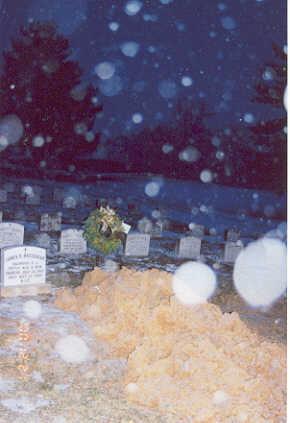
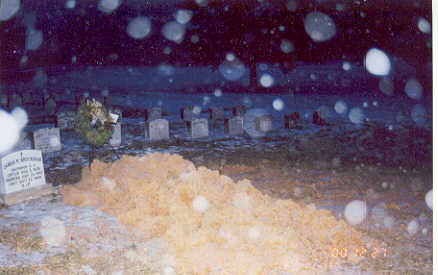
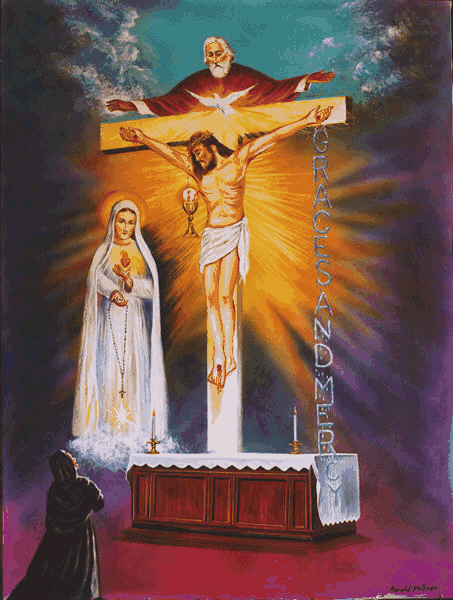
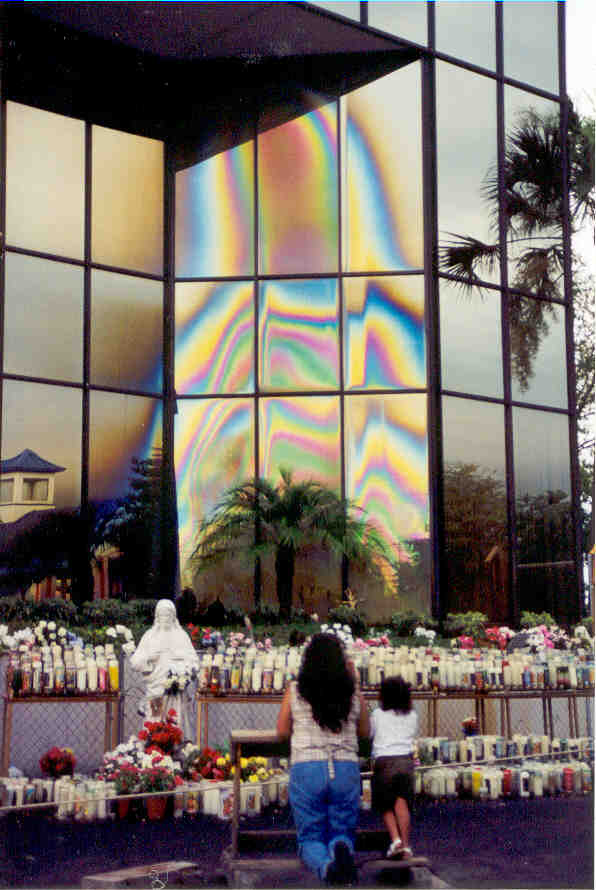







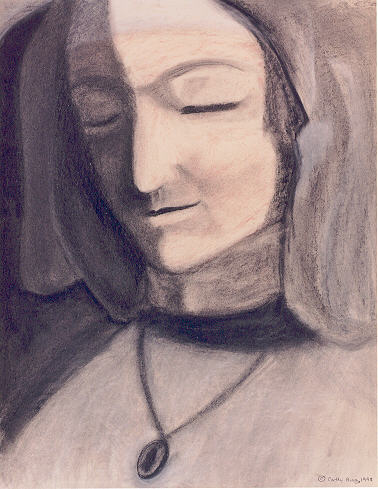 Mary's
Message from the Rosary of August 27, 1996
Mary's
Message from the Rosary of August 27, 1996

